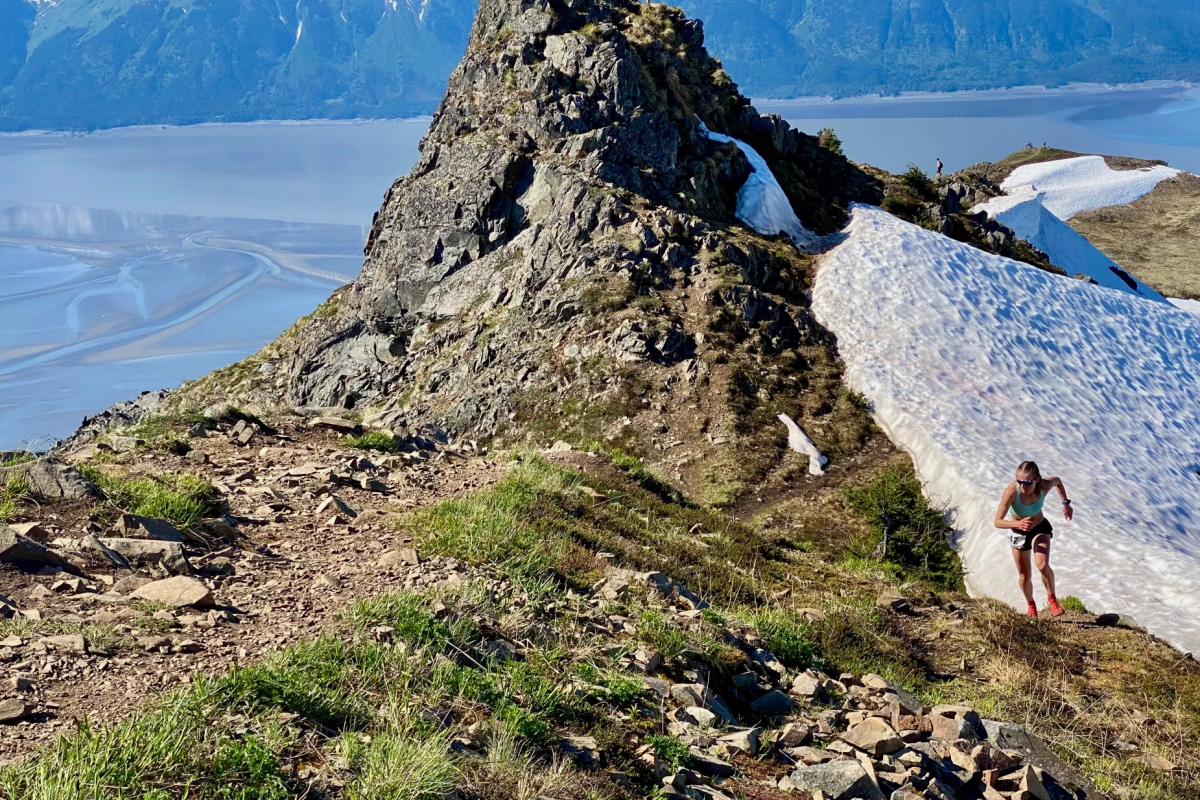Bill Holland, a screenwriter who lives in Montpelier, VT with his wife and
two daughters, has been cross-country ski racing for over 40 years.

You can’t know East Montpelier native Liz Stephen even a little bit and not be struck by her zest for living and her positive energy. So it’s not surprising that while her blog (lizhstephen.blogspot.com) records such highlights as the recent visit of Team U.S.A. to the White House, it hasn’t so far dealt with what was, for her, a profoundly disappointing 2010 Winter Olympics. “I had high but realistic expectations that I didn’t even come close to fulfilling,” she said during a recent phone interview. “You know the way your body should be feeling. You’re used to a level of racing where you push hard and ski well, and suddenly you’re fighting to not get last. It’s a totally different mind-set.”
But the mystery of what happened to Liz in last February in Vancouver is no mystery to any endurance athlete who’s done his or her share of racing. You toe the line for some big event—maybe the Boston Marathon, if you’re a runner, or the Craftsbury Marathon, if you’re a Nordic skier—and the realization you’ve been trying to keep at arm’s length abruptly lands: thanks to some glitch in your preparation (the most common one being overtraining) you just don’t have it. Mentally, you’re fired up. This is the moment you’ve spent months preparing for. But no amount of internal pep talk seems to change the fact that your legs feel flat—devoid of fizz just when you need it most.
All you can do now is push ahead, hoping for some miraculous influx of energy. But deep down, you know you’re kidding yourself. The account is overdrawn, but you have to pop the check in the mail anyway, hoping against hope that it won’t bounce. But bounce it does. In the case of the Boston Marathoner, there’s always next year to look forward to—or maybe just the next race.
But not for frustrated Olympians like Liz. She now has to wait four more years for an Olympics that reflects her proven ability, an ability amply demonstrated by three top-20 finishes at last year’s World Championships in Liberec, Czech Republic where the field was, if anything, more competitive than at the Olympics.

A sub-par season has many causal strands, but in Liz’s case, a major one occurred during those crucial summer months of training when a world-class skier had better make some big deposits into the conditioning account. A nagging foot injury knocked out two prime building blocks of her training program: running and plyometrics (repeated jumps or bounds to increase muscle power) and forced excessive reliance on rollerskiing, which doesn’t develop the quickness needed for skiing on snow.
The World Cup season got off to a solid start in mid-November with a top-40 finish, but for the next eight races it was all downhill, including some finishes very near the bottom of the heap. At the U.S. Nationals in early January, where Liz had been accustomed to dominating, she managed only a single third place—not great but decent enough, on the one hand, to restore some badly needed confidence and on the other, to stoke some excessively high expectations. Then it was back to Utah for three weeks of training at altitude. Hoping to rebuild her conditioning, Liz committed the classic mistake of the driven: she overtrained and, as a result, arrived in Vancouver bone-tired.
At the opening ceremonies, there was the immense excitement of stepping into the stadium with Team U.S.A. after a two-hour wait in a hot, crowded hallway and suddenly being showered with paper, dazzled by lights, and deafened by cheers. (“My eyes have never been opened so wide,” Liz recalls.) But that high was punctured in short order by two sobering finishes: a 49th in the 10-kilometer skate race followed four days later by a 59th in the 15K pursuit.
Since these were ordinarily two of Liz’s best events, she saw the writing on the wall and sat out both the team relay and the team sprint, two events she’d very much looked forward to. Alaskan Holly Brooks, a last-minute addition to the Team, took her place. Liz absorbed the disappointment but didn’t wallow in it. She recalls, “I took a day to say, ‘This really sucks,’ then decided to be the kind of teammate I’d want someone else to be for me. I got out there and cheered.”
Following the Olympics, there was one more trip overseas—this time to Lahti, Finland and to Oslo, site of the upcoming 2011 World Championships. Despite a lackluster result there, she loved the carnival atmosphere created by hundreds of thousands of Norwegian Nordic enthusiasts, many of whom arrived a week early to camp in the woods alongside the course. Then, during the race itself, they would clutch their start lists and cheer lustily for every contestant by name—from the front-runners to the also-rans. (Liz, alas, should know.) Afterwards, it was back to Utah, where Liz had fun exploring the snow-bowls on back-country skis, and finally home for two weeks in Vermont with her parents.
To their credit, the coaching staff of the U.S. Ski Team looked past the season’s results, recognized Liz’s tremendous potential and work ethic and in mid-April awarded her one of only three berths reserved for women on a U.S. Cross-Country Ski Team roster that had been downsized from thirteen to only seven. As a result, she will once again be attending summer training camps in places like Bend, Oregon and one of her favorite spots on the planet: New Zealand.
Asked about the burden of expectation being placed on her, Liz finds reassurance in the one thing that has never varied: her love for the sport. “I tend to work well under stress,” she reflects. “I’m not too concerned. My job is simply to get as strong as and as fit as possible. Basically, I still want to be skiing. If I have another tough season, what are my options? They’ll involve me skiing, me still loving my sport. I can deal with the pressure because I want to ski as well as I can.”
To this end, Liz and her former coach at Burke Mountain, Matt Whitcomb, who is now her coach for the World Championships, have developed a training program that employs plyometrics in a pool, gradually works running back into her routine, and includes a hefty dose of mountain biking. The result should be a more rounded athlete, one less susceptible to overuse injuries.
After returning to Park City, Utah, Liz looks forward to training with teammate and buddy, Morgan Arritola. And there’s other company on the horizon. Now that Justin Wadsworth, an American, is coach of the Canadian Ski Team, Liz foresees a closer working relationship with them at the training camps in Bend and New Zealand, especially now that the rivalry engendered by the Canadians quest to “own the podium” at Vancouver is a thing of the past.
One senses that the disappointments of last winter will soon simply be “things of the past” as well—melted like an April snowbank by Liz’s resolutely sunny temperament. At the same time, she seems seasoned by adversity, by knowing what it’s like to hit bottom—hard and suddenly, as she did in Vancouver—but not let it dim either her joie de vivre or her basic belief in herself. Now, with the recent reappointment to the U.S. Ski Team, Destiny has handed the 23-year-old Liz an ideal second chance. Rest assured: she will make the most of it.
Nathaniel Herz
Nat Herz is an Alaska-based journalist who moonlights for FasterSkier as an occasional reporter and podcast host. He was FasterSkier's full-time reporter in 2010 and 2011.



